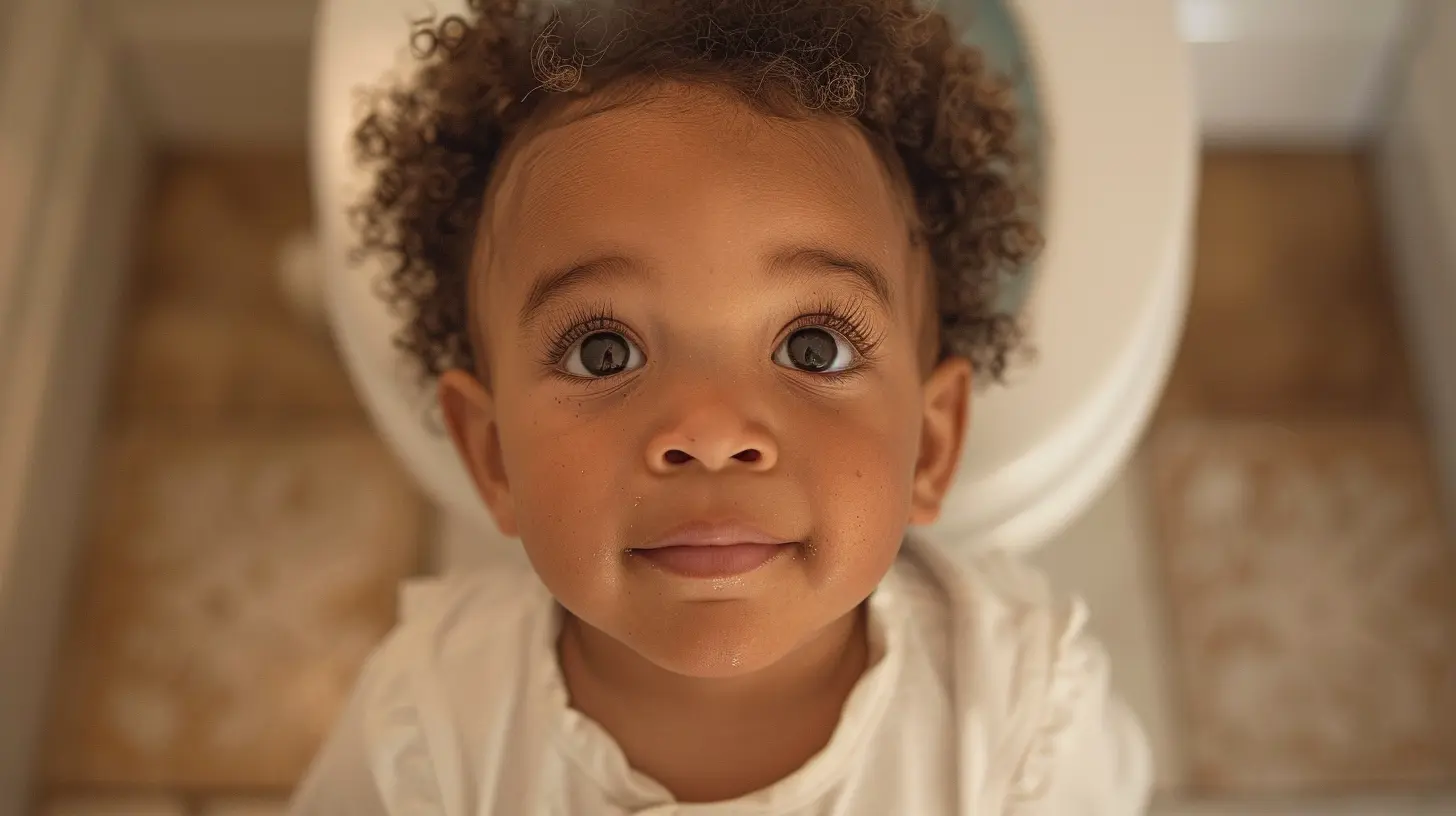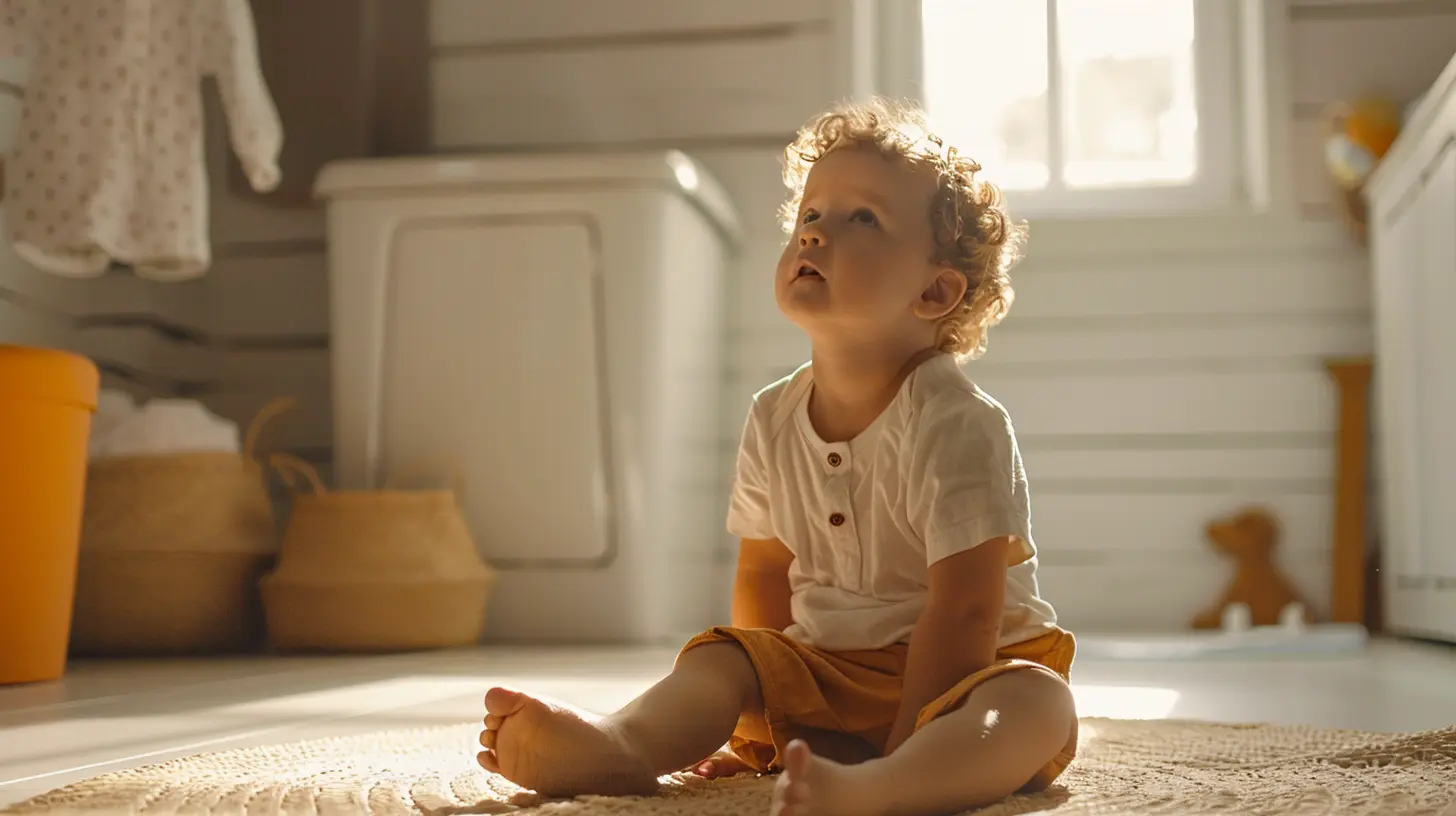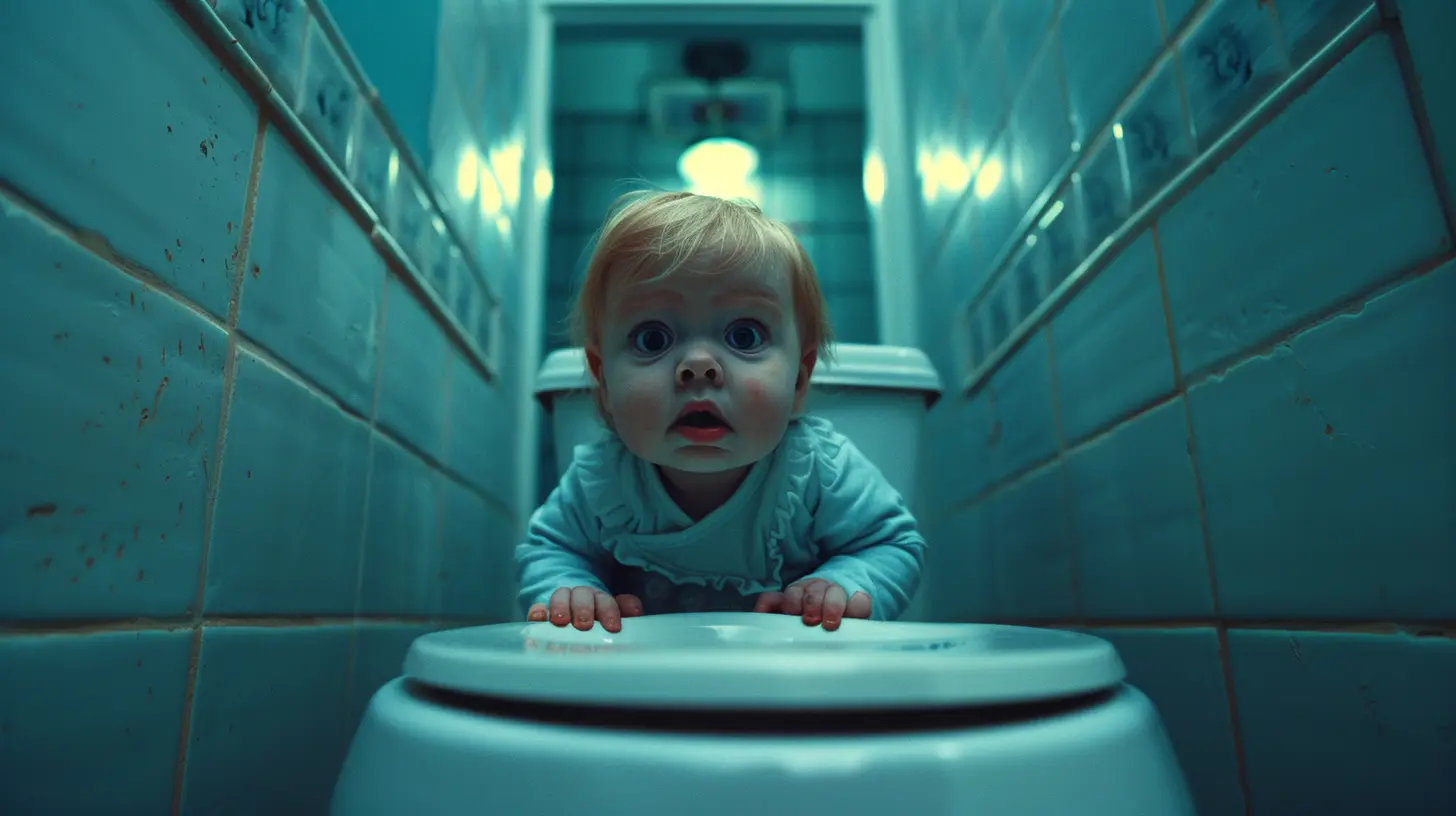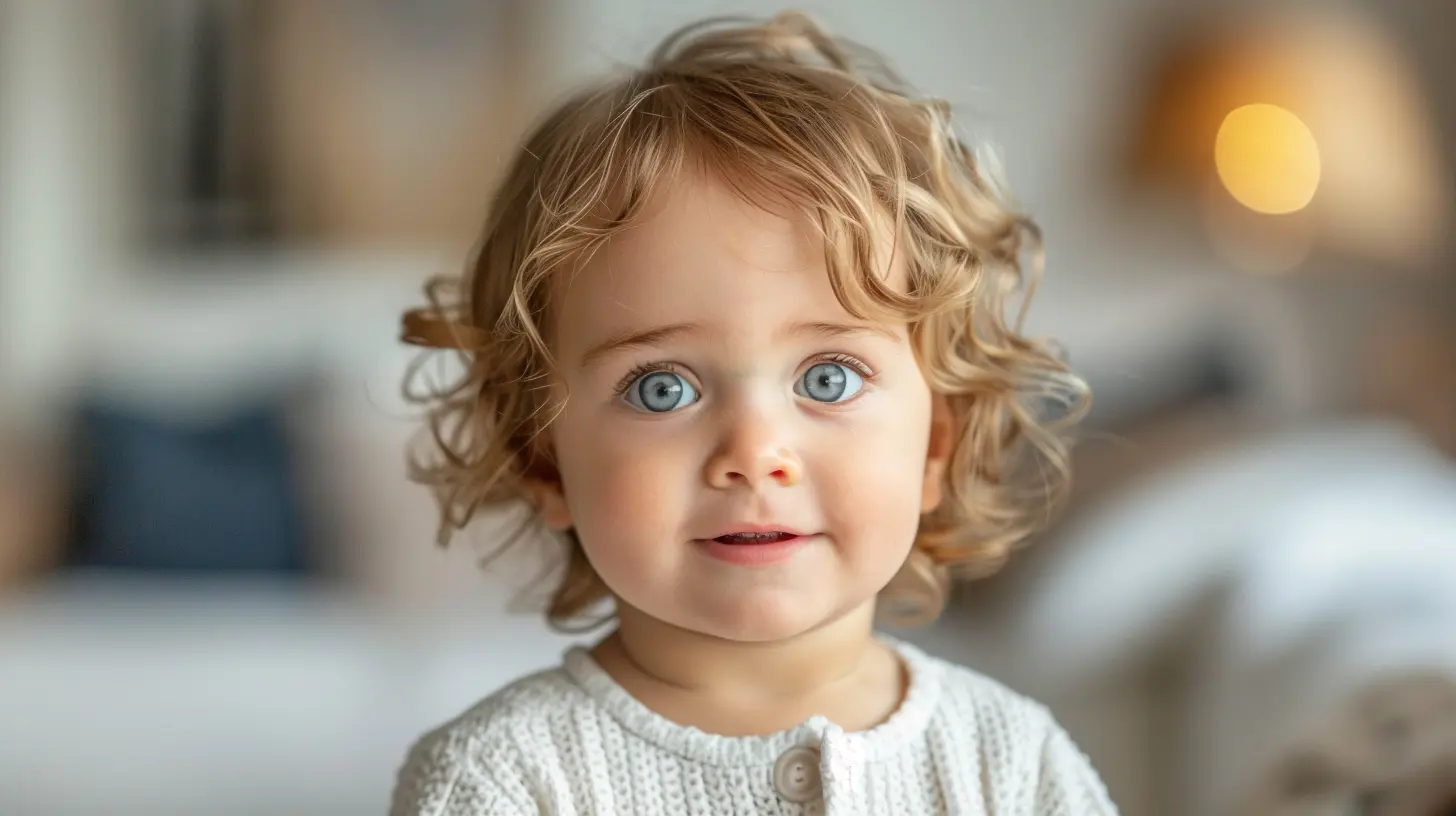Starting Potty Training Early: Is It a Good Idea?
25 December 2024
Potty training is one of those monumental milestones in every parent’s life. It's right up there with your baby’s first steps and saying their first word. It signals a huge leap towards independence, not just for your little one, but for you, too. You no longer have to deal with every diaper change—hallelujah!
But when should you start potty training? Some parents swear by starting early, while others take a more laid-back approach. There’s certainly no "one-size-fits-all" answer, which leaves many parents scratching their heads. So, let’s break it down: Is starting potty training early really a good idea?
What Is Early Potty Training?
Before we dive into the pros and cons, let’s get on the same page about what "early" potty training actually means.Traditionally, potty training starts between 2 and 3 years of age, give or take. Early potty training generally refers to starting the process before your child turns 2, and sometimes even as early as 12 months. For some, early potty training can be considered "infant potty training," or "elimination communication," in which parents begin observing and responding to their baby’s signals for needing to go.
But let’s face it: potty training is a big deal, and starting early can seem like a daunting task. So the real question is: is it worth it, or should you wait it out?
The Benefits of Starting Potty Training Early
Every parent brims with pride when their kid hits a new milestone, and early potty training is no exception. But beyond the warm fuzzies of achievement, there are plenty of actual perks. Let’s look at some potential benefits of starting early.1. Get Ahead of the Curve
Starting potty training early can give the impression that you’re ahead of the game. Society often equates early achievements with success. Imagine having your kiddo diaper-free before they hit the 2-year mark! Sounds like a parenting medal, right?In some cultures, early potty training is not just common, it’s expected. For instance, many kids in China and parts of Africa are toilet trained well before their second birthday. This shows that earlier potty training is not exactly a novelty, and it’s certainly possible.
2. Fewer Diapers
Let’s be real—diapers are expensive and inconvenient. You’re basically throwing money in the trash (literally). Plus, the environmental impact of disposable diapers is substantial, with millions of tons of diapers filling up landfills each year.Fewer diapers? Less waste? More savings? Starting potty training early could ease that financial and ecological burden, freeing up your budget for more important things like… coffee.
3. Promotes Independence
Starting potty training early can encourage a sense of responsibility and independence in your little one. It also helps promote body awareness, teaching them to listen to their own signals.It’s like teaching them a secret language with their own body. As they begin to recognize the urge to go, they also begin to establish confidence in their ability to manage their own bodily functions. Early potty training can, in effect, empower toddlers and give them a sense of control over their day-to-day life.
4. Less Resistance Later On
Believe it or not, some parents claim that early potty training results in fewer battles down the road. Starting when kids are younger makes them more adaptable to the process, while older toddlers might show more resistance.Toddlers who hit the "terrible twos" can, well, be little terrors when it comes to transitions. Waiting until they’re older could trigger a power struggle, and let’s be honest, toddlers are stubborn! Early potty training could potentially avoid this roadblock.
The Potential Downsides of Early Potty Training
Now, it’s not all rainbows and unicorns. As with any parenting approach, there are potential pitfalls to starting potty training early. Let’s take a closer look at the possible downsides.1. Your Child May Not Be Ready
Potty training requires both physical and emotional readiness. If your child isn’t ready, you could be in for a frustrating, drawn-out process. While you can start introducing the concept early, pushing too hard might backfire.Remember, not all children develop at the same rate. Some reach physical milestones earlier, while others take their sweet time. Bladder control is a crucial factor in successful potty training, and if your child’s body just isn’t there yet, there’s really no rush.
2. Possible Regression
Starting early doesn’t mean the process will be quicker or more successful. Some children might start strong with early potty training, only to hit a wall months later.Regression is common—especially if there’s a big life change, like a new sibling, moving homes, or starting daycare. If you start early and your child regresses or loses interest, you may end up spending more time potty training, not less.
3. Takes Patience (Lots of Patience!)
Parents who start early often need to dedicate a lot of time and attention to the process. If your child is on the younger side, they might not yet be able to communicate their need to go, making the whole process more trial and error… with a lot of errors.Early potty training may mean more accidents and more cleaning up. Let’s face it, it might feel like you spend half your day mopping up puddles and scrubbing the floor. It’s no walk in the park!
4. Potential Stress for You and Your Child
The process of potty training is already stressful for many parents, and starting early means that pressure begins sooner. There’s a fine line between guiding your child and feeling like you’re pushing them. If your child isn’t catching on, it can quickly become frustrating for both them and you.Forcing potty training before your child is ready can lead to power struggles, feelings of frustration, or even anxiety surrounding the toilet. It's important to remember that no two children are alike, and there's no need to rush the process if it’s not working.
How To Tell If Your Child Is Ready for Potty Training
So, should you wait or start potty training early? Ultimately, readiness is key! Before diving headfirst into early potty training, watch for signs that your child might be ready to start using the potty:1. Physical Readiness
Is your child able to stay dry for at least two hours at a time? Can they walk to and from the potty on their own? If they show these signs, their body may be ready to start potty training.2. Behavioral Readiness
Does your child show an interest in the toilet or pull on their diaper when it’s dirty? Do they want to mimic what the adults or older siblings are doing in the bathroom? If so, it's a good indicator that they’re getting curious—and ready—for the potty.3. Emotional Readiness
Potty training requires emotional maturity, too. Is your child showing signs of independence? Do they like "helping" and taking part in daily routines? If they seem motivated to do things on their own, they might be emotionally ready to give potty training a shot.Tips for Starting Early Potty Training
If you’ve decided to give early potty training a go, here are some helpful tips to make the process a bit smoother:1. Introduce it Slowly
There’s no rush. Introduce the potty casually and talk about it during diaper changes. Let your child sit on it (even if they don’t use it) to familiarize them with the idea.2. Celebrate the Small Wins
Make it fun! Celebrate even the smallest victories. Whether they sit on the potty or just tell you when they’re going, offer praise and encouragement. Positive reinforcement goes a long way.3. Stay Consistent
Consistency is key. Set a schedule, whether it’s first thing in the morning, after meals, or before bed. Routine can help reinforce the behavior and make it part of your child’s day-to-day life.4. Be Patient
Patience, patience, PATIENCE. Potty training is a process, and every child will master it at their own pace. Try not to stress if it takes longer than expected—every step is progress.5. Be Prepared for Accidents
Accidents are part of the learning process. It’s totally normal! Have cleaning supplies ready, and try to stay calm. Your child will likely follow your lead, and if you’re stressed, they can become anxious, too.Conclusion: Is Early Potty Training Right for Your Child?
At the end of the day, there’s no right or wrong answer to starting potty training early. Some children are ready sooner than others, and some parents are up for the challenge.If you believe your child is showing signs of readiness and you have the time and patience to commit to the process, then early potty training could work for you. But if you feel like waiting—and that’s totally okay!—know that there’s no rush. Parents who start potty training later in the game can still be just as successful.
Ultimately, listen to your child and follow their lead. And remember, potty training is a marathon, not a sprint. Whether you start early or wait until later, your child will get there in their own time.
all images in this post were generated using AI tools
Category:
Potty TrainingAuthor:

Maya Underwood
Discussion
rate this article
13 comments
Rhea Valentine
Great insights! Starting potty training early can be a helpful approach for some families. Every child is unique, so trust your instincts. Happy parenting!
February 2, 2025 at 5:30 PM

Maya Underwood
Thank you! I appreciate your thoughtful comment. Every child's journey is different, and trusting your instincts is key. Happy parenting to you too!
Murphy Roth
Starting potty training early can be beneficial, but it’s essential to consider your child's readiness. Every child develops at their own pace, so be patient and supportive.
January 30, 2025 at 5:32 PM

Maya Underwood
Thank you for your insightful comment! You're absolutely right—understanding and respecting each child's readiness is key to successful potty training. Patience and support make all the difference.
Carla Wilkerson
I love the idea of exploring early potty training! It’s fascinating to consider the different approaches parents take. I’m curious about how readiness varies among children and what techniques have worked best for others.
January 28, 2025 at 4:23 AM

Maya Underwood
Thank you for your comment! Potty training readiness can vary widely among children, and techniques such as positive reinforcement and consistency often yield the best results. Exploring different approaches can definitely help in finding what works for each child.
Alessia Hunter
Thank you for this insightful article! The discussion on early potty training offers valuable perspectives for parents. It's essential to consider each child's readiness and unique development to make informed decisions. Your tips will certainly help many families navigate this process.
January 25, 2025 at 4:47 PM

Maya Underwood
Thank you for your kind words! I'm glad you found the article helpful and valuable for parents navigating potty training.
Dominic Hernandez
Great article! Starting potty training early can be a personal choice for many families. Understanding each child's readiness and comfort level is key. It’s wonderful to see parents exploring options that suit their unique situations. Trusting your instincts will always lead to the best outcomes!
January 23, 2025 at 4:40 AM

Maya Underwood
Thank you for your thoughtful comment! I completely agree—every child is unique, and understanding their readiness is essential for a successful potty training experience.
Rosanna Hill
Great article! It’s essential for parents to consider their child’s readiness and individual needs when deciding on early potty training. Every child develops at their own pace.
January 19, 2025 at 4:58 AM

Maya Underwood
Thank you! You're absolutely right—recognizing each child's unique readiness is crucial for a successful potty training experience.
Rusty McNulty
Every child is unique; trust your instincts.
January 16, 2025 at 6:02 AM

Maya Underwood
Absolutely! Each child's readiness varies, so trusting your instincts is key in deciding when to start potty training.
Kaitlin McKeehan
Starting potty training early can be beneficial, but readiness varies by child. Balancing encouragement with patience ensures a positive experience for both parent and child.
January 6, 2025 at 3:28 AM

Maya Underwood
Thank you for your insightful comment! I completely agree—each child is unique, and finding the right balance of encouragement and patience is key to a successful potty training experience.
Uriah McVicar
I'm intrigued by the idea of early potty training! What specific signs should parents look for to know if their child is ready? Excited to hear more about this approach!
December 30, 2024 at 3:47 AM

Maya Underwood
Look for signs like staying dry for longer periods, showing interest in adult bathroom habits, communicating the need to go, and discomfort in dirty diapers. These can indicate readiness for early potty training!
Soren Harper
Starting potty training early can foster independence and readiness, but it's crucial to consider the child's emotional and physical development. Rushing may lead to negative experiences and setbacks. Balance is key.
December 29, 2024 at 5:35 PM

Maya Underwood
Thank you for your insightful comment! Balancing early potty training with a child's individual readiness is indeed essential for a positive experience.
Dana McPhail
Great read! Potty training can feel daunting, but starting early can set the stage for success. Every child is different, so trust your instincts and keep it fun. Celebrate the small victories, and remember—patience and encouragement go a long way! You’ve got this!
December 26, 2024 at 4:30 AM

Maya Underwood
Thank you for your thoughtful comment! I completely agree—patience and encouragement are key in the potty training journey.
Craig Ramos
Starting potty training early can foster independence and confidence in your little one! Every child is unique, so trust your instincts and be patient. Celebrate small successes to make the journey enjoyable. Remember, it's all about finding what works best for your family!
December 25, 2024 at 3:25 PM

Maya Underwood
Thank you for your insightful comment! Celebrating each child's unique journey in potty training is crucial for fostering confidence and independence. Your perspective emphasizes the importance of patience and adaptability.
Zaid Palmer
Great insights! Early potty training can vary by child; every journey is unique. Thank you!
December 25, 2024 at 4:31 AM

Maya Underwood
Thank you for your thoughtful comment! You're absolutely right—each child's potty training journey is unique.
MORE POSTS

Promoting Self-Regulation: Techniques for Managing Difficult Emotions

Strengthening Sibling Bonds Through Fun Family Traditions

How Potty Training Can Improve Your Child’s Independence

Potty Training on a Schedule: How Structured Time Can Help

Instilling a Growth Mindset in Children

The Vital Role of Nutrition in Child Brain Development

How to Support Your Baby's Fine Motor Skills with Everyday Activities

The Importance of Self-Care for Moms and Dads

Eco-Friendly Traditions Your Family Can Start Today